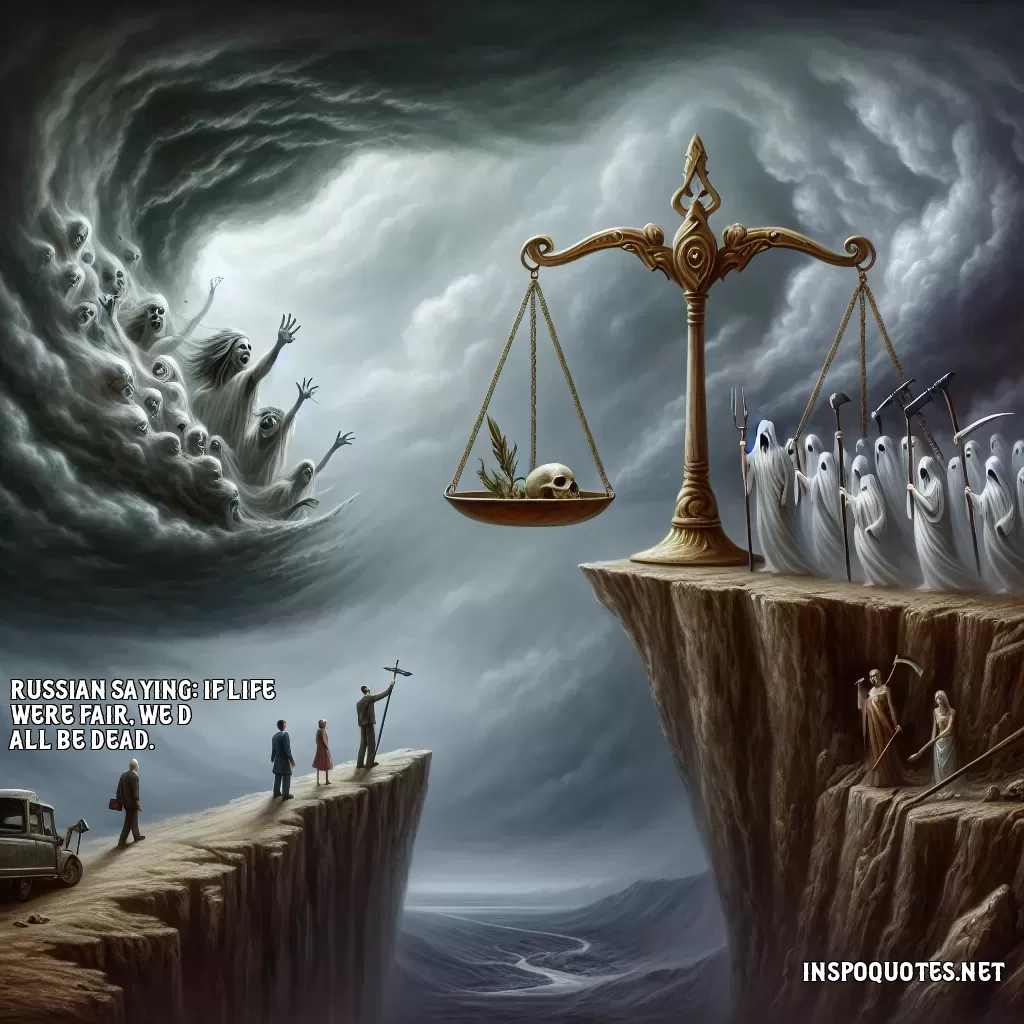
Russian Saying: If life were fair, we’d all be dead.
Author: Vladimir Nabokov
👁️ 18 views
The Russian saying "If life were fair, we’d all be dead" initially appears paradoxical, but it conveys a profound insight into the nature of life and fairness. This saying suggests that life inherently involves randomness and inequality, and that a perfectly fair world is not only unattainable but possibly undesirable. The idea here is that fairness, if taken to an extreme, would imply a balancing of all things to such an extent that life, with all its inherent unpredictabilities and disparities, would cease to exist. In life, people experience a range of luck, capabilities, and circumstances that are not equally distributed, which includes the distribution of resources, opportunities, and life spans. From a biological perspective, fairness might mean equal resource allocation, which does not consider the varied needs and potentials of different individuals or species. In such a rigidly fair world, the dynamic process of evolution, driven by survival of the fittest and natural selection, might not function effectively, potentially leading to stagnation or collapse of ecosystems. Moreover, fairness often assumes a zero-sum game where fairness is achieved by redistributing existing resources or circumstances. If applied superfluously, it could lead to outcomes where life loses its richness and diversity, and theoretically, a ‘fair’ conclusion for all could be the cessation of life, as mortality is the ultimate equalizer. Thus, the saying captures the wisdom that life’s imperfections, while often frustrating, are integral to its existence and continuance. It reflects philosophical views on how perfection and fairness might have unintended consequences that challenge the fundamental nature of life itself. The saying invites us to embrace life's contradictions and uncertainties, recognizing that they can be sources of resilience, growth, and transformation.
Quote By: Vladimir Nabokov
Vladimir Nabokov was a Russian-American novelist, poet, and entomologist, born on April 22, 1899, in Saint Petersburg, Russia. Renowned for his intricate prose and explorations of complex themes, Nabokov is best known for his controversial masterpiece "Lolita," which delves into obsession and desire. Emigrating to the United States in 1940, he enjoyed a successful literary career, which included works like "Pale Fire" and "Ada," before passing away on July 2, 1977, in Montreux, Switzerland.
Bio added on: 2025-02-14 22:19:30